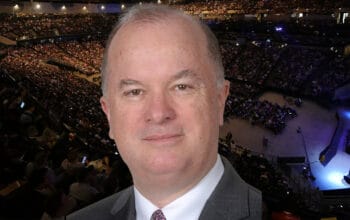Over the past few weeks, I have been intensively examining what scientists and long-term investors are saying about the climate crisis and climate change. The questions were: How do they analyze the climate crisis? What conclusions do they draw from their analysis? And how do they position their portfolio?
[extoc title=”Table of contents”]
The search for answers has made me doubt some of the assumptions that one can have as a long-term investor:
- Investments in emerging markets, such as India or Indonesia, offer long-term growth: this will be difficult if droughts and extreme heat days could make life impossible there.
- Investments in real estate are more conservative: perhaps less than one might think, if sea level rise is accelerated by climate change and entire regions could be flooded and heat days could make completely new demands on buildings.
- We have a predictable future: investors often rely on the fact that an investment can also be planned in the future. But the climate crisis calls this security into question, because it can also shake the foundations of our civilization.
It also surprised me that there are still relatively few contributions that shed light on the climate crisis from the (value) investor perspective. So, I would be happy to hear your comments if you have any other sources.
Jeremy Grantham: Do we live in a hostile environment?
Jeremy Grantham stands for the G in GMO. In the value investing world, he has earned a very good reputation as an investor through his long-term, data-driven assessments. In recent years, he has also given a number of lectures on the climate crisis and the state of our environment. I have compiled these into a playlist that is really worth looking at:
Jeremy Grantham, who has now donated almost all of his fortune to the fight against climate change, addresses a whole range of topics in his lectures – all underpinned by a wealth of data.
The food supply complex is particularly exciting and frightening at the same time. Already today, many soils are very much used by our agricultural production processes. Climate change can exacerbate this situation: Heavy rainfall events, which will increase, will also erode more and more soil. This can lead to a decline in agricultural productivity over the next few decades.
There can also be threats from other corners: the rise in temperature will reduce the reproductive capacity of many insect species, which in turn will affect the biosphere, soil quality and food availability. Jeremy Grantham even argues that we are in the process of putting our environment into a life-threatening state through the use of chemicals.
Spencer Glendon: What happens to investments in coastal regions?
Spencer Glendon has been working at the interface of climate and financial market research for many years. In his work, he transfers findings from climate research to the capital markets – and comes up with frightening projects. In this very interesting lecture at the SOHN Conference 2019, he deals with the “climate bubble” that threatens the real estate market and municipal budgets in Florida:
Spencer Glendon also shakes the assumption that the future growth of the world economy will come from warm emerging markets, such as India. Droughts and the increase of deadly heat days speak against much growth from such emerging markets, as this projection also shows:
Another interesting lecture by Spencer Glendon I found on Vimeo. There he discusses the significance of climate change for the real estate industry:
Bill Gates: Innovations for climate protection
Bill Gates is also one of the investors and donors who have taken up the cause of decarbonising the economy and combating climate change. Bill Gates focuses primarily on innovations to decarbonize production processes in various industries. You can find an overview of his work in this playlist:
In the Gates Notes , his blog, he presents various projects. For example, he supports companies working on the decarbonization of steel production.
Johan Rockström: Are we at risk ofdestabilizing the Earth?
Johan Rockström is not an investor, but a climate researcher. In his speech at the Berlin Green Investment Summit 2019, however, he addressed investors. There he analyses the current state of the planet. On the other hand, he talks about strategies and ways to decarbonize our economy.
Picture source: Ian Froome on Unsplash



